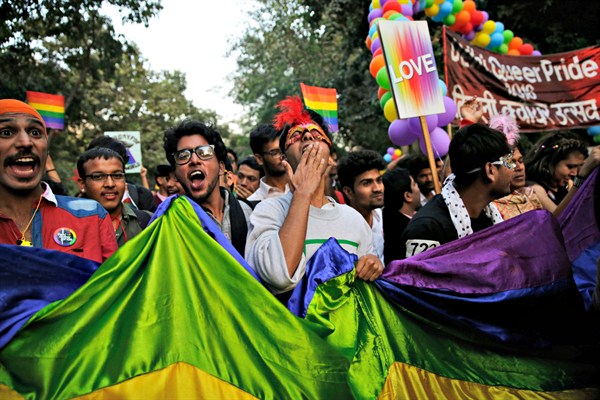India’s Supreme Court ruled Thursday that people have a fundamental right to privacy, curtailing the Indian government’s efforts to implement the world’s biggest biometric database. But the court also recognized, for the first time, that sexual orientation is an essential part of privacy and dignity, paving the way for LGBT equality in India and beyond.
The ruling comes after years of both advances and setbacks for LGBT people in India. The country’s so-called sodomy law, Section 377 of the Indian Penal Code, punishes “carnal intercourse against the order of nature” with up to life in prison. The law had been struck down in 2009 by the Delhi High Court, which said the law was a violation of fundamental rights to life, liberty and equality guaranteed by the Indian Constitution. At the time, the Delhi High Court had noted how criminalization of same-sex relations harms the lives of LGBT people.
“If there is one constitutional tenet that can be said to be [the] underlying theme of the Indian Constitution, it is that of ‘inclusiveness,’” the court said in its ruling then, declaring its belief that India’s Constitution “reflects this value deeply ingrained in Indian society, nurtured over several generations.” “The inclusiveness that Indian society traditionally displayed, literally in every aspect of life, is manifest in recognizing a role in society for everyone,” the judges added. “Those perceived by the majority as ‘deviants’ or ‘different’ are not on that score excluded or ostracized.”

